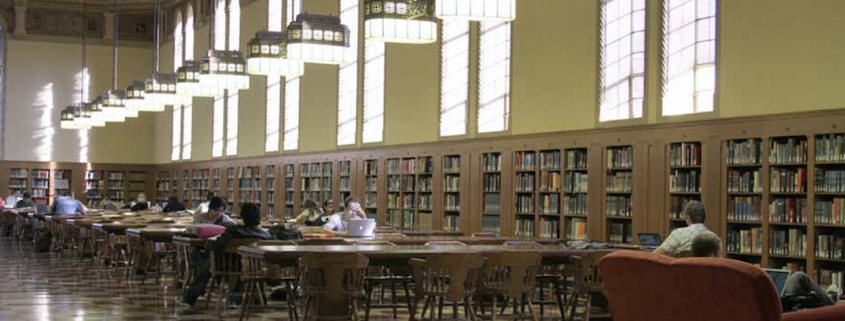USC ranks for producing Fulbright scholarship recipients

USC has been named one of the largest producers of Fulbright scholars in the U.S. by the Fulbright U.S. Student Program. Fourteen students were accepted to the 2018-19 fellowship program, which has taken them to foreign countries to conduct research and teach English at international schools.
This is the seventh consecutive year USC has been named one of the top producers of Fulbright scholars in the nation. The cultural exchange program was established by J. William Fulbright and is sponsored by the Bureau of Educational and Cultural Affairs.
The program offers students who have completed their undergraduate degree an opportunity to spend one year in a foreign country, where they are provided with grants to complete community or research projects.
According to USC, the University is projected to produce similar results in this year’s application cycle, as there are 30 semifinalists in the process, which is more than half of all USC students who applied.
Alejandro Schugurensky, who graduated in 2018 with a degree in sociology, is using his Fulbright Scholarship to study the effects of socioeconomic statuses and policies on access to education in Brazil. Schugurensky said he decided to learn more about education because of the activities and research he had participated in at USC, including his role as a tutor for the John McKay Center.
“I took a class that was focused on international education systems, and I remember … one of the weeks of that class we discussed Brazil,” Schugurensky said. “I became passionate for studying Brazil’s educational inequality that are persistent in this country.”
Prior to becoming a Fulbright scholar, Schugurensky conducted research in USC’s sociology department, studying educational opportunities in California with a focus on charter schools.
“My project looked at the differences in … access to higher education in Brazil over the past few years and where things are so unequal,” Schugurensky said. “Basically, what was the impact of the social policy in order to address higher education inequality in Brazil.”
Rachel Udabe graduated in 2018 with degrees in political science and public policy and currently teaches English to elementary, middle and high school students in Taiwan. Udabe said she was influenced by her mother, who worked as a public school teacher and often expressed her views about the public education system.
As a child, Udabe was interested in Chinese and Taiwanese history and sought to combine it with her passion for education.
“Fulbright English Teaching was a way for me to be able to see inside Taiwanese schools, to see if I wanted to continue to pursue teaching or go more into the [education] policy route,” Udabe said. “It really covered all the bases of things I wanted to do and an after-college job.”

Udabe said her experiences volunteering with the Joint Educational Project and the Civic Engagement Volunteer Program through the Unruh Institute of Politics, both of which send student volunteers into local classrooms, helped her discover her passion for teaching.
“That co-teaching teaching experience, maybe not only [made me] know that I could do it, but I enjoyed doing it and I loved working with the kids,” Udabe said.
Through her overseas experience, Udabe said she has improved her teaching skills.
“I’ve just been able to really learn how to teach,” Udabe said. “Teaching is a profession where you always need to have a growth mindset, but I’ve definitely become more comfortable with being in the classroom.
Peter Bergmann, who graduated in 2018 with a degree in economics and mathematics, is also using his Fulbright scholarship to teach English in Taiwan. Bergmann has studied Mandarin since freshman year, and said he wanted to learn more about East Asian culture.
“Education is a very interesting lens to view a country’s culture,” Bergmann said. “I feel like it was a very interesting way to learn about Taiwan in a way that’s different than just going to study abroad … I’m also really interested in the role that English plays in other countries.”
According to Bergmann his work in the Brittingham Social Enterprise Lab, where he researched how business methods drive social change sparked his interest in education.
“As I was trying to choose what I wanted to do after graduation, and they helped encourage me to choose more nontraditional career paths rather than just going straight into a job,” Bergmann said.
After a year in Taiwan, Bergmann says he wants to continue living in East Asia and working.
“I might stay in the teaching English as a foreign language role, or I might transfer to a more sustainable business or a sustainable energy-focused role,” Bergmann said.

